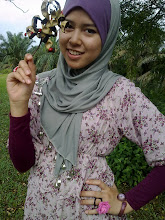
Kuala Lumpur, 13 September 2010 – Universiti Putra Malaysia (UPM) and Universiti Malaya (UM) today joined the Education Partner Program (EPP) spearheaded by YTL Communications Sdn Bhd (YTL Comms). Under the program, both universities will apply the power of 4G Mobile Internet campus-wide to give their students cutting-edge learning facilities and further enhance the quality of life on campus for both students and academic staff.
UM plans to utilise YTL's 4G Campus-wide Network to boost research activities and be among the top 100 universities in the world
UPM and UM are the third and fourth local university respectively to join the EPP program in the last two months after UTM and UTAR. All twenty of Malaysia’s public universities and selected private universities are expected to join the program by the end of the year.
“We want the students to access our enterprise, learning and research services from anywhere and at anytime and therefore we are pleased to partner with YTL Comms to give our students the freedom and the convenience of 4G Mobile Internet,” said Professor Tan Sri Datuk Dr. Nik Mustapha R. Abdullah, Vice Chancellor of UPM.
“We champion the model of Ubiquitous Learning at UPM. This means learning whatever, whenever, wherever. We call it www-learning, which is, incidentally, the way the real Internet should be, too”, said Associate Professor Dr. Suhaimi Napis, CTO and Director, InfoComm Development Centre (iDEC), UPM.
The Ubiquitous Learning Environment (ULE) at UPM, the brainchild of Dr. Suhaimi, relies on the Malaysian Research and Education Network (MYREN), a high-capacity broadband network that connects universities, colleges, research organisations and scientific laboratories. UPM was one of the founding proposers of this dedicated network that provides a platform for creating research communities and encourages them to exchange ideas and collaborate with international partners.
